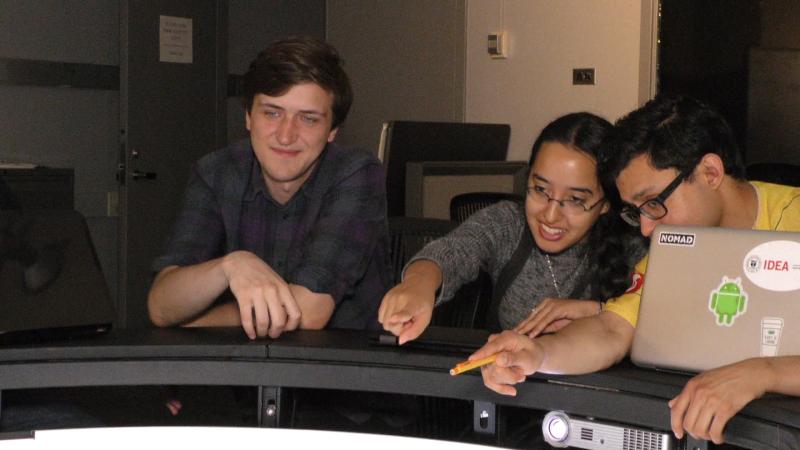$15,000 awarded for app that identifies social determinants of early death
February 12, 2020

The U.S. Department of Health and Human Services Agency for Healthcare Research and Quality (AHRQ) has awarded a Rensselaer Polytechnic Institute team $15,000 for an app called MortalityMinder, which identifies social conditions contributing to declining life expectancy at a community level.
The project was selected for third place in the national Visualization Resources of Community Health-Level Social Determinants of Health Challenge. MortalityMinder was one of 11 teams chosen for the final round of the two-phase competition and the only academic team represented among the final prize winners. Teams from the data firm Mathematica and the Salish Research Group won first and second place.
AHRQ Director Gopal Khanna, MBA, announced the winners on Tuesday at AcademyHealth’s annual Health Datapalooza conference in Washington, D.C.
“While data offers us new ways of understanding our world, it can be challenging for communities to make sense of torrents of data streams. Innovations in data visualization, such as the Community Connector tool, turn data into a guiding compass,” Khanna said. “Together data, analytics, and visualization will help deliver 21st-century health care for patients and evidence-based health policy for communities.”
MortalityMinder identifies social determinants — including measures of health behavior, clinical care, the physical environment, and social and economic factors — that contribute to the leading causes of death nationwide. The app was built by Rensselaer students participating in the Data Interdisciplinary Challenge Intelligent Technology Exploration (INCITE) Laboratory, a capstone experience directed by Kristin Bennett, associate director of the Rensselaer Institute for Data Exploration and Applications.
“By using existing data to shed light on the underlying causes of poor health in the United States, the MortalityMinder app offers an excellent example of the power of data analytics, and the potential it has to help us solve real-world problems,” said Curt Breneman, dean of the Rensselaer School of Science. “We are proud of the team of Rensselaer students and faculty who developed this app, and we’re pleased to see their achievements recognized with this reward.”
The project was supported by a grant from the United Health Foundation, and benefited from advisers at the United Health Foundation, Capital District Physicians’ Health Plan, Continuum Health, and New York State Department of Health.
In August 2019, the team was awarded a $10,000 prize for a prototype that was produced in the first phase of the competition.
Bennett is attracting the attention of hospitals and health insurers for her work in “precision health care” research and pedagogy. In contrast with precision medicine, which uses data to tailor treatments to a specific patient, precision health care uses data for a broader and more complex purpose — improving health-care delivery and outcomes for groups of patients with distinct needs.
An example of her work, published in Big Data, analyzes Medicare patient records from a local hospital to find out why some patients are likely to land back in the ER within three days of a visit. In a new project funded by insurer Capital District Physicians’ Health Plan, Bennett is using machine learning and data analytics to understand why costly interventions succeed for some patients but not others.